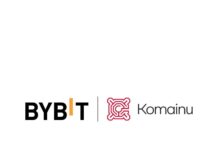
Secure multiparty computation (MPC) has been extensively researched during the past 30 years as it can theoretically provide limitless computational power. The rise of bitcoin and the blockchain technology, during the recent few years, have created new possibilities that can revolutionize MPC.
Inspired by bitcoin, a group of researchers published a thesis that focused on the formulation of a secure MPC platform that relies on the blockchain technology to promote security, efficiency and scalability. Just like bitcoin entirely changed the concept of distributed consensus, the thesis aimed at taking secure MPC from theory to the realm of practice. The thesis offers a model of secure computation within an environment comprised of rational players.
Overview of the Proposed Decentralized MPC Protocol:
The proposed framework represents a decentralized cloud based system that promotes the integrity and privacy of the data it handles. The framework offers outsourcing of computational power while promoting both the security of the handled data and correctness of the output of the computation process. A key feature in the framework is that enables the owner of the handled data to select who can query it. This guarantees that the owner can have full control over who can query his/her data; in such manner, the approved players, who are called “services”, will only learn the output, and the raw data input will not be revealed to them. Given that all computation processes take place under the umbrella of the secure MPC protocol, no other player on the platform will learn anything else.
The system includes three forms of entities and each one of those entities can have more than one role:
– Owners: are players who share their data on the cloud platform seeking outsourced computation power. Owners are the only players who can select who can query their data.
– Services: are players who, when approved, can query the data from owners, seeking outsourced computation power, without learning anything but the results of the data they query
– Parties: are players forming nodes across the platform to outsource their computation power and storage space in exchange for rewards in the form of bitcoin.
Note: Owners are described as input parties, while services are described as output parties and both of them are referred to as “clients”.
Owners and services are players on the system who interact with parties via the platform’s cloud. Practically speaking, parties represent the nodes that technically comprise the platform’s cloud and somehow act like physical servers. However, unlike a conventional cloud where the servers are centrally owned and controlled, the platform is decentralized. Another way to better understand computing parties is to think of them as bitcoin miners, who offer their machines’ processing power in exchange for cryptocurrency rewards.
An essential additional party of the proposed MPC system is bitcoin’s blockchain. Although bitcoin’s blockchain is a decentralized entity by its own, the MPC system utilizes it as a single party that offers correctness, cryptocurrency rewards and a synchronized global clock.
Figure 1 illustrates how the system functions. Figure 1a shows how each one of the three entities “sees” the system. In the first sub-figure, computing parties become part of the system by registering on the blockchain and connecting to earlier registered parties to form a decentralized cloud. All parties are required to have an amount of bitcoin that can be locked away by the system, as a security deposit amount, that can be used as a compensation whenever dishonest behavior takes place. Generally speaking, the blockchain is utilized as a trusted party that handles record keeping, identification of cheaters and mitigation of disputes (all these tasks require achieving a public consensus ). Additionally, the blockchain is trusted to execute the protocol and facilitate payments.
From an owner’s perspective, sharing data will require creating a single “store call” to link data to the MPC network, as illustrated in Figure 1b. As shown in Figure 1C, the owner can select the parties who will query his/her data in a totally secure environment. The owner always has control over changing the permissions’ settings; approving new services or removing ones that were previously approved.
As illustrated in Figure 1d, a service sends the processed data to be evaluated in the same manner it would do with a conventional cloud. The computation includes payment of bitcoin for the resources that had been provided by the parties. The model is designed so that the service either provides the correct output of the data or refunds the payment for the task.
Utilizing the blockchain technology to secure multi-party computing MPC is one of the greatest applications of the public ledger technology. Although the Storj project offered the same idea via a new cryptocurrency “Storj”, the new approach utilizes bitcoin’s blockchain to secure and provide rewards for outsourcing computation power.
[newsletter_form lists="1"]










